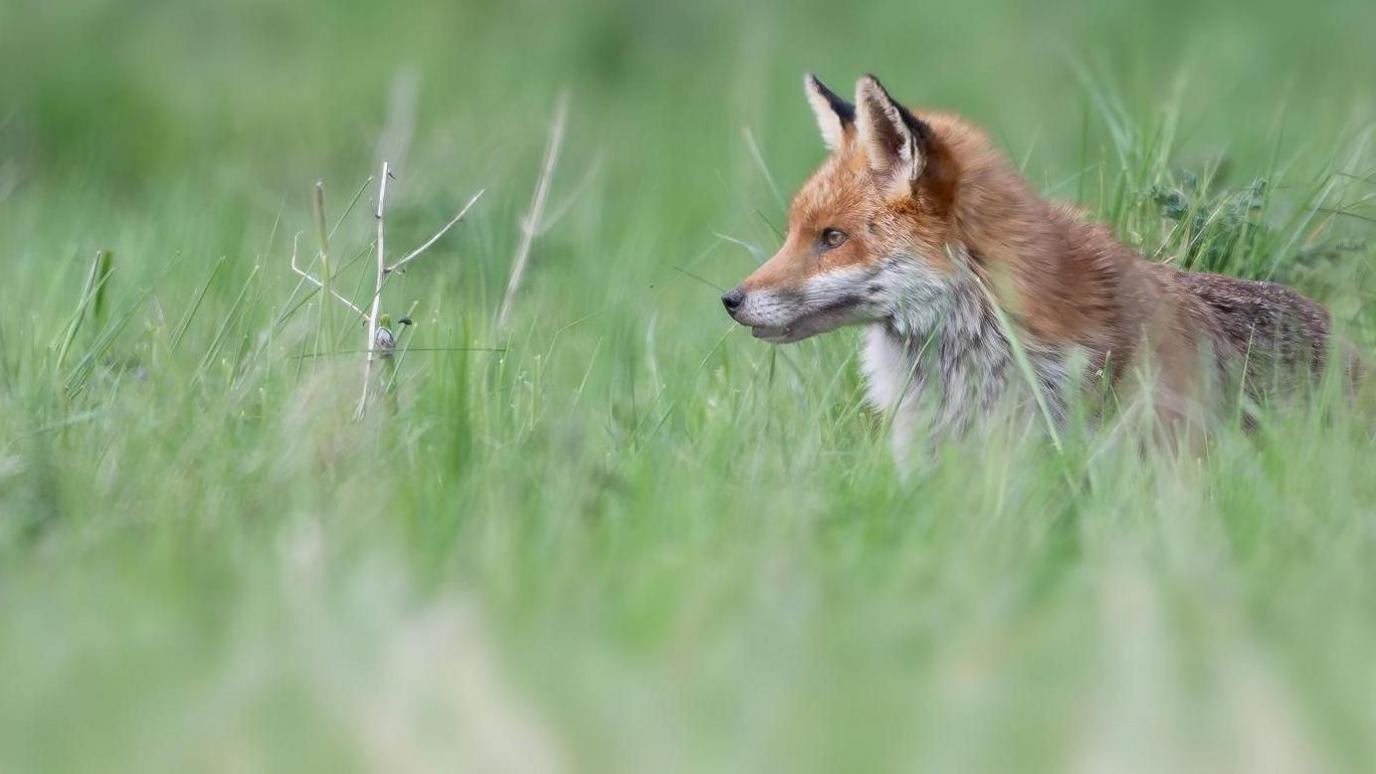Author creates 'paradise' from old cricket field
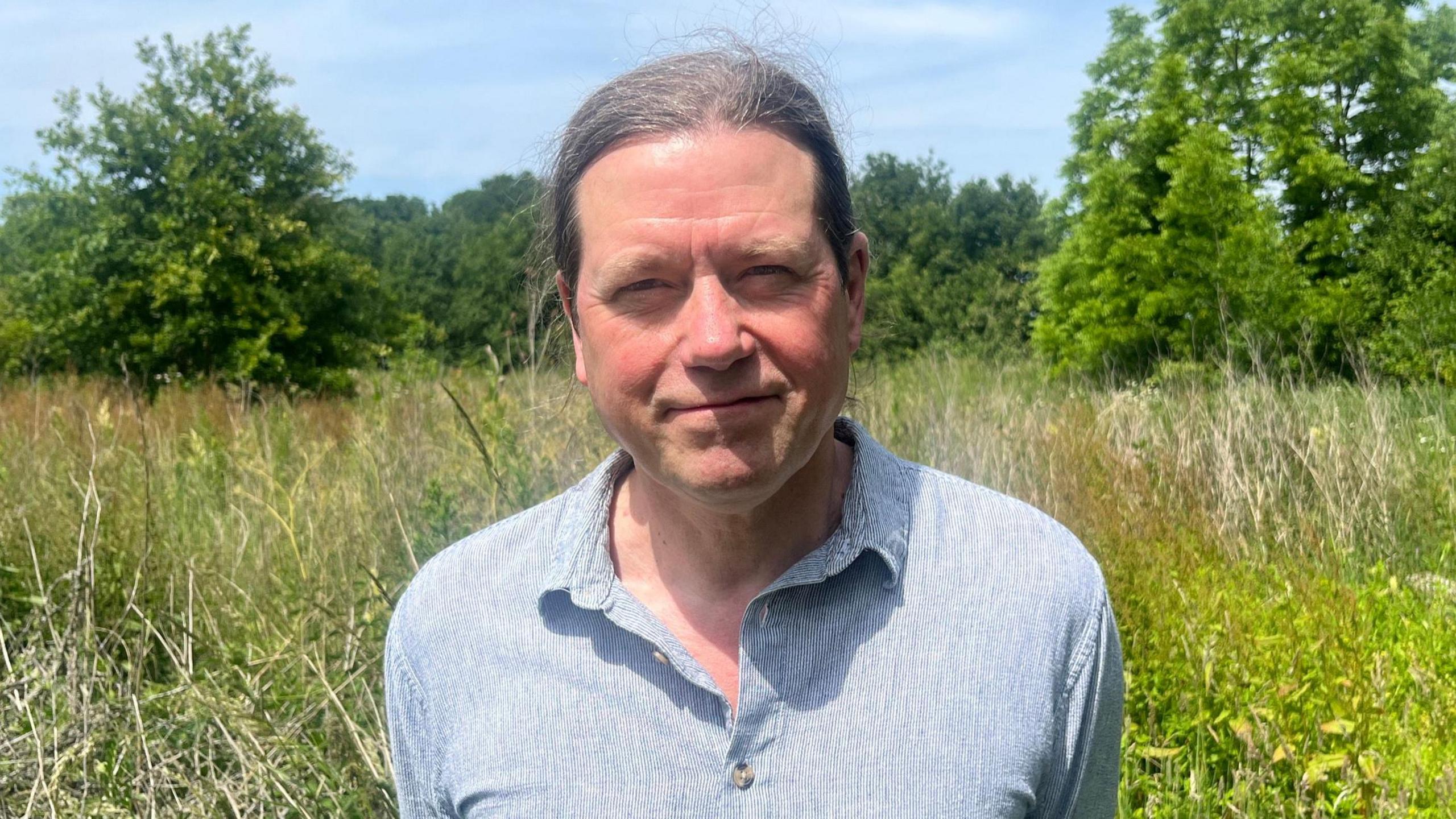
James Canton has written several books about nature
- Published
A nature writer who has transformed a former cricket field into a wildlife meadow has said anyone can get involved in increasing biodiversity, even if they have a window box.
James Canton says it has taken him 15 years to transform two acres of land at Little Maplestead, on the Essex-Suffolk border, from concrete and overgrown grass to a fully functioning ecosystem.
In that time, the 58-year-old has created a "paradise" home to nightingales, butterflies and bumble bees, as well as an abundance of thriving wildflowers.
Mr Canton said: "There was nothing living there, it's very difficult for any biodiverse life living on just a bit of grass."
When he first started, the author enlisted the help of an expert to help him and said: "It was a gradual process.
"You're creating little pockets where wildlife can come back."
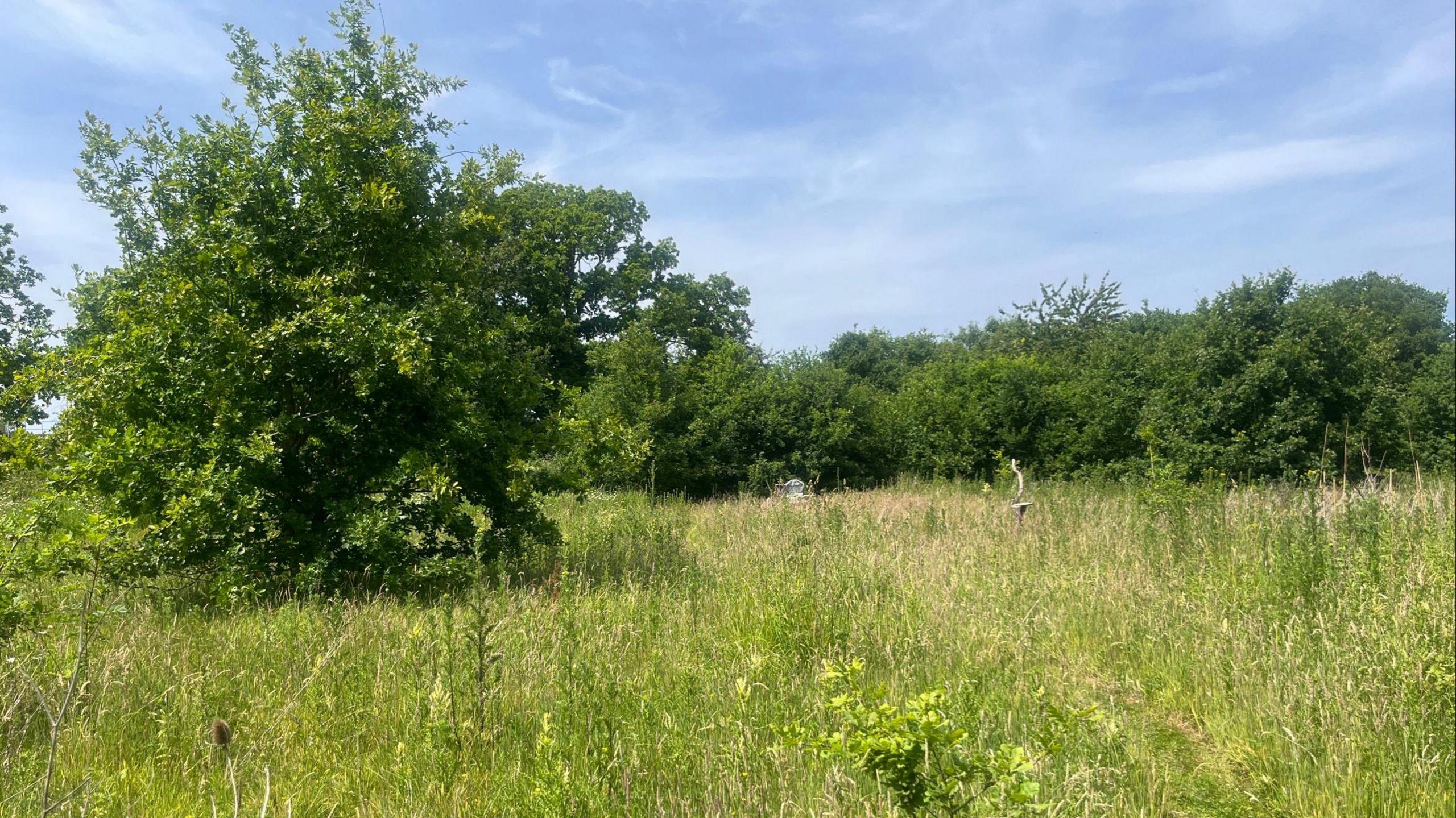
James Canton has managed to rewild a former cricket ground and says being close to nature can be achieved in small steps
Mr Canton grew up in north London but moved to rural Essex. He now works as a lecturer for the University of Essex and has written six books.
While growing up in London he said he was always playing football in the park and wanted to be outside in nature.
Mr Canton said rewilding usually required at least 100 acres of land which was not accessible to everyone.
But he said young people had become conscious about the environment and could do their bit by creating a small pocket of wildlife in their homes through renaturing.
The writer said renaturing is as simple as filling an old cardboard box with soil and planting some native flowers where bees and pollinators will come and feed.
He described the process of renaturing as "small scale nature restoration".
"It's good for you and good for nature," he said.
"I think as humans we are happier when we are outside."
He said renaturing was different to rewilding because that was "taking large areas of the globe and not having human intervention".
In his twenties, Mr Canton travelled the world and saw how indigenous and Eastern cultures lived alongside nature.
"We [the West] tend to have more of a colonial mindset with nature and what we can take," he said.
"We need to be part of nature but for indigenous people that is their standard."
However, he said renaturing was starting to become a recognised term as people in urban areas looked for ways to reconnect with wildlife.
Get in touch
Do you have a story suggestion for Essex?
Follow Essex news on BBC Sounds, Facebook, external, Instagram, external and X, external.
Related topics
You may be interested in
- Published13 May
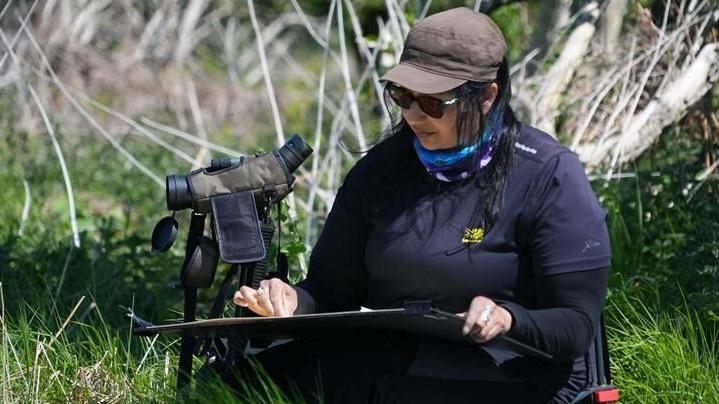
- Published9 January
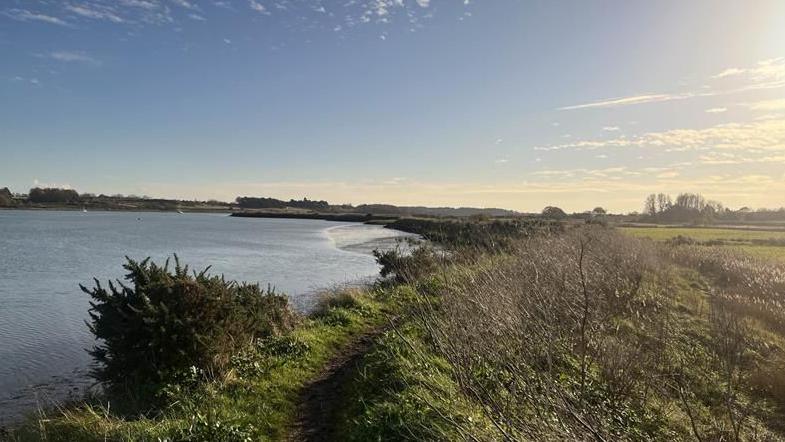
- Published14 November 2024
